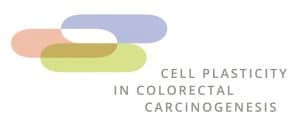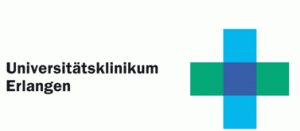Vascular endothelial growth factor is regarded as one of the most important mediators of angiogenesis in human cancers including colorectal cancer (CRC). However, recent data suggest additional roles for VEGF besides angiogenesis in tumor development. VEGF receptors such as VEGFR2 are expressed by various cancer cells and their activation promotes tumor cell proliferation. VEGF also acts on cells in the tumor microenvironment such as fibroblasts, myeloid cells and T cells, mainly to support tumor promoting-inflammation and inhibit the anti-tumor immune response.
In preliminary experiments, we found an upregulation of VEGFR2 in effector T cells (Th1 and Th17) and natural regulator T cells. Using conditional knockout mice for VEGFR2 in CD4+ T cells, we could show that VEGFR2 signaling in CD4+ T cells has protective effects in a mouse model of sporadic CRC. These data clearly show that VEGF signaling plays a previously unrecognized role in adaptive immunity in cancer.
This project will further analyze the functional role of VEGFR2 in CD4+ T cells. In order to identify the functionally relevant VEGFR2 expressing CD4+ T cell subpopulation in the tumor microenvironment, we will analyze VEGFR2 reporter constructs restricted to CD4+ T cells with various in vivo imaging strategies in mouse CRC models. For functional analysis, we will expose conditional knockout mice for VEGFR2 together with or without its co-receptor neuropilin 1 in CD4+ T cells, FoxP3+ Tregs or RORgt+ Th17 cells to mouse models of sporadic and colitis-associated cancer. We will then analyze the biological function and underlying molecular mechanisms of VEGFR2 signaling in relevant CD4+ T cell populations in vitro and in vivo. Together, the data acquired in this project will increase our knowledge about the effects of tumor derived VEGF on the tumor microenvironment, its role for tumor progression and possible consequences for anti-VEGF therapy in CRC.
In the lab of Prof. Waldner PhD student Viktoria Kramer and technical assistant Daniel Beß are working on this project.
Publications in the course of this funding
Jung D, Heiss R, Kramer V, Thoma OM, Regensburger AP, Rascher W, Uder M, Neurath MF, Knieling F, Waldner MJ: Contrast-Enhanced µCT for Visualizing and Evaluating Murine Intestinal Inflammation.
Theranostics. 2018 Dec 7;8(22):6357-6366.
Scheibe K, Kersten C, Schmied A, Vieth M, Primbs T, Carlé B, Knieling F, Claussen J, Klimowicz AC, Zheng J, Baum P, Meyer S, Schürmann S, Friedrich O, Waldner MJ, Rath T, Wirtz S, Kollias G, Ekici AB, Atreya R, Raymond EL, Mbow ML, Neurath MF, Neufert C: Inhibiting Interleukin 36 Receptor Signaling Reduces Fibrosis in Mice with Chronic Intestinal Inflammation.
Gastroenterology. 2018 Nov 16. pii: S0016-5085(18)35277-6.
Ellmann S, Langer V, Britzen-Laurent N, Hildner K, Huber C, Tripal P, Seyler L, Waldner M, Uder M, Stürzl M, Bäuerle T: Application of machine learning algorithms for multiparametric MRI-based evaluation of murine colitis.
PLoS One. 2018 Oct 26; 13(10):e0206576
Knieling F, Gonzales Menezes J, Claussen J, Schwarz M, Neufert C, Fahlbusch FB, Rath T, Thoma OM, Kramer V, Menchicchi B, Kersten C, Scheibe K, Schürmann S, Carlé B, Rascher W, Neurath MF, Ntziachristos V, Waldner MJ: Raster-Scanning Optoacoustic Mesoscopy for Gastrointestinal Imaging at High Resolution.
Gastroenterology. 2018 Mar;154(4):807-809.e3.
Waldner MJ, Rath T, Schürmann S, Bojarski C, Atreya R: Imaging of Mucosal Inflammation: Current Technological Developments, Clinical Implications, and Future Perspectives.
Front Immunol. 2017 Oct 11;8:1256.

